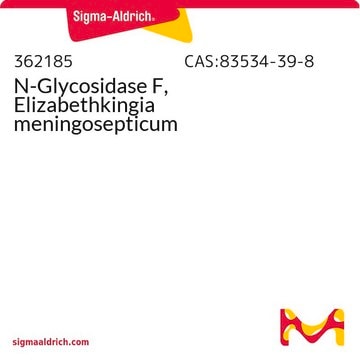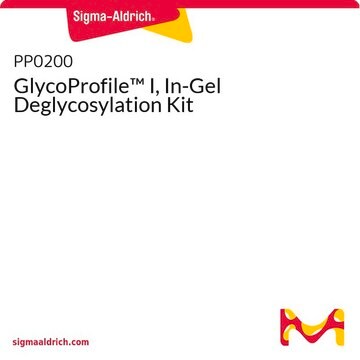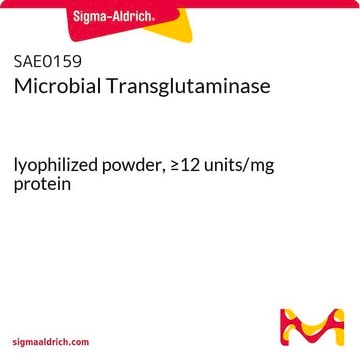EMS0001
PNGase Fast
recombinant, expressed in E. coli
Sinónimos:
N-Glycosidase F, PNGase F, Peptide N-glycosidase
About This Item
Productos recomendados
recombinant
expressed in E. coli
Quality Level
conjugate
(N-linked)
grade
Proteomics Grade
form
ready-to-use solution
shipped in
wet ice
storage temp.
2-8°C
Categorías relacionadas
General description
Application
Biochem/physiol Actions
Storage Class
10 - Combustible liquids
Certificados de análisis (COA)
Busque Certificados de análisis (COA) introduciendo el número de lote del producto. Los números de lote se encuentran en la etiqueta del producto después de las palabras «Lot» o «Batch»
¿Ya tiene este producto?
Encuentre la documentación para los productos que ha comprado recientemente en la Biblioteca de documentos.
Los clientes también vieron
Artículos
Fast assessment of antibody-dependent cell-mediated cytotoxicity (ADCC) and glycoform pattern of a therapeutic antibody rituximab by FcγRIIIa affinity chromatography.
Fast assessment of antibody-dependent cell-mediated cytotoxicity (ADCC) and glycoform pattern of a therapeutic antibody rituximab by FcγRIIIa affinity chromatography.
Fast assessment of antibody-dependent cell-mediated cytotoxicity (ADCC) and glycoform pattern of a therapeutic antibody rituximab by FcγRIIIa affinity chromatography.
Fast assessment of antibody-dependent cell-mediated cytotoxicity (ADCC) and glycoform pattern of a therapeutic antibody rituximab by FcγRIIIa affinity chromatography.
Nuestro equipo de científicos tiene experiencia en todas las áreas de investigación: Ciencias de la vida, Ciencia de los materiales, Síntesis química, Cromatografía, Analítica y muchas otras.
Póngase en contacto con el Servicio técnico










